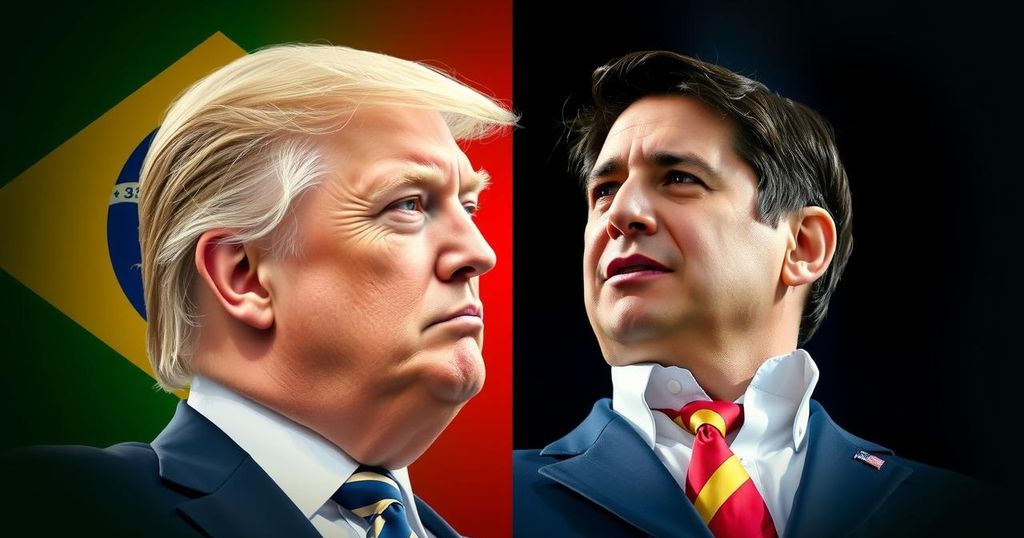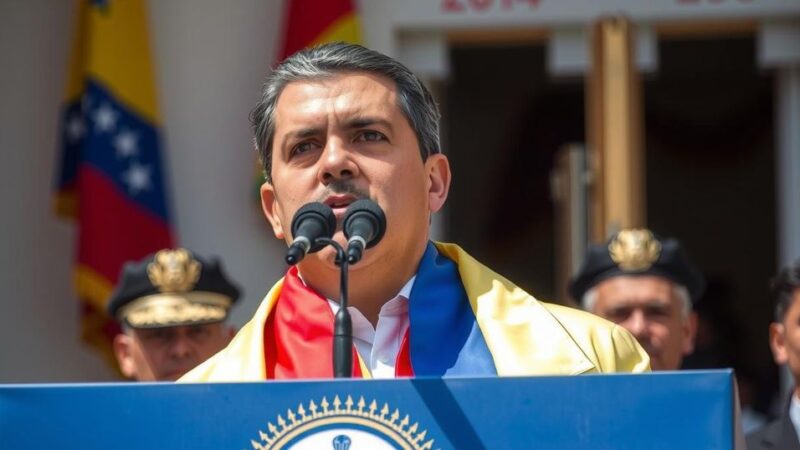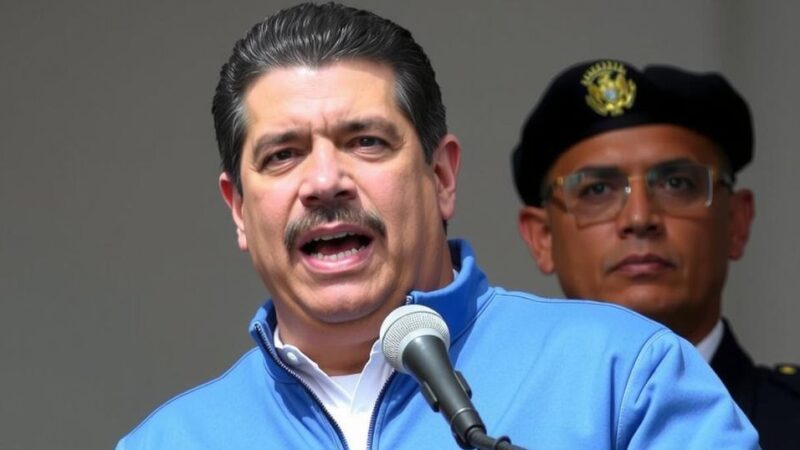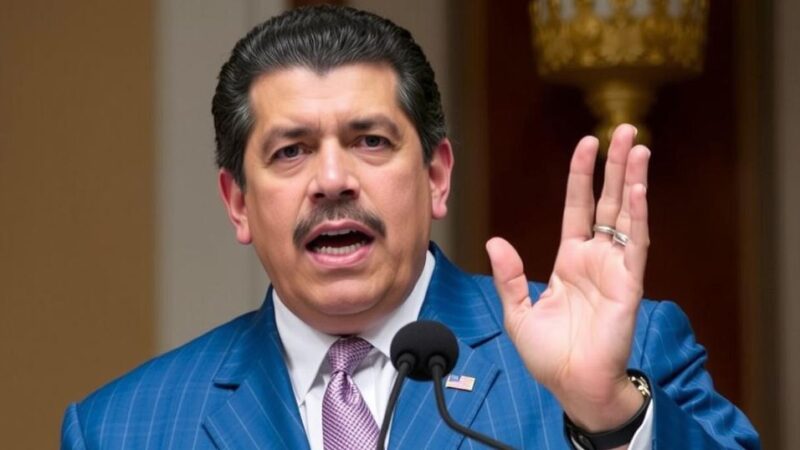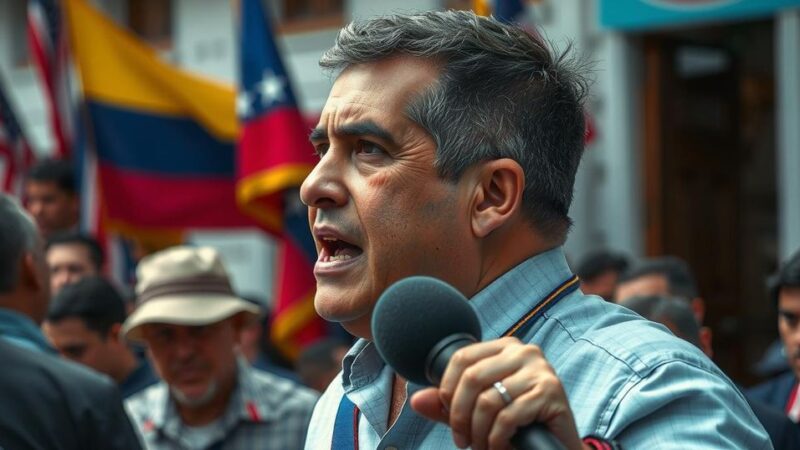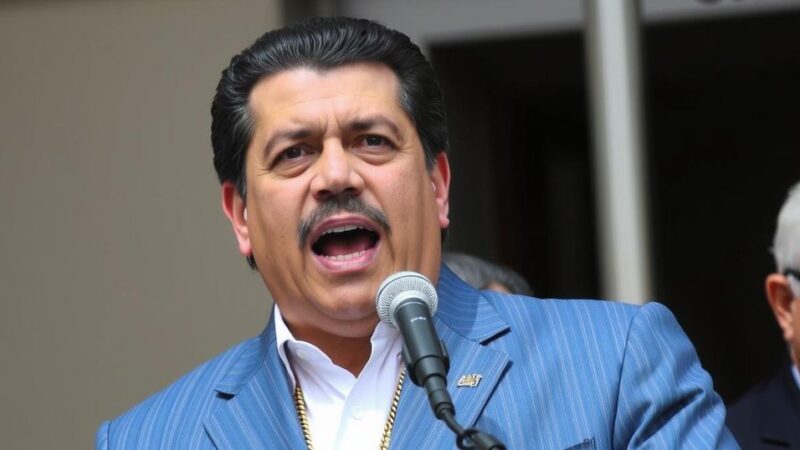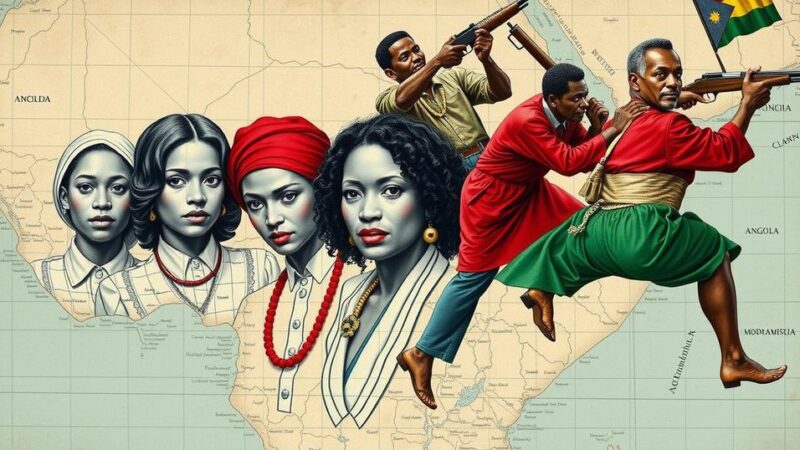The electoral victory of President-elect Donald Trump offers renewed hope to former Brazilian President Jair Bolsonaro, who currently faces a legal ban from office until 2030. Bolsonaro aims to overturn this ban and sees Trump’s presidency as a potential lever against Lula’s government. As Brazil navigates its political future, the election dynamics mirror increased polarization and shifting alliances.
The recent victory of President-elect Donald Trump in the November elections presents a hopeful scenario for Jair Bolsonaro, the former president of Brazil, who is currently barred from seeking public office until 2030 due to a ruling by Brazil’s Superior Electoral Court. Known as the “Trump of the Tropics,” Bolsonaro is actively seeking ways to overturn the court’s decision that was based on his alleged abuse of power and attacks on Brazil’s electronic voting system. Bolsonaro’s supporters anticipate that Trump’s presidency may bring some pressure on the current government of President Luiz Inácio Lula da Silva, potentially paving the way for a presidential challenge in 2026.
Bolsonaro’s son, Congressman Eduardo Bolsonaro, expressed optimism regarding Trump’s electoral win, stating, “Trump’s victory goes far beyond being positive for democracy in Brazil and the world; it is good news for global peace.” He further highlighted Lula’s earlier anti-Trump sentiments and how, following Trump’s victory, Lula attempted to downplay those statements. Despite this, Lula’s allies have voiced strong opposition to the incoming Trump administration.
With Lula attempting to minimize U.S. influence by reaching out to BRICS nations to reduce dollar dependency, Bolsonaro argues that such strategies will ultimately harm Brazil. He believes that Trump’s administration could apply economic pressure on Lula’s leadership, particularly as Lula’s administration faces declining popularity and rising economic challenges like inflation and national debt.
Despite Bolsonaro’s ban and the political challenges ahead, recent opinion polls indicate that, if eligible to run, he could secure significant electoral support against Lula. As Bolsonaro navigates his political constraints while seeking to reenter the Brazilian political landscape, analysts note that the right-wing sentiment is rejuvenated by Trump’s success.
Commenting on the situation, political analyst Sandra Bronzina stated, “The fact that Trump has returned with a resounding electoral win does not bode well for the Lula administration.” This sentiment is echoed by Congressman Marcel van Hattem, who noted, “The Supreme Court disqualified Jair Bolsonaro in a very unfair decision…but the right will be strengthened now since Donald Trump’s victory gave the right in Brazil new hope in 2026.”
In summary, while Jair Bolsonaro’s path to re-election remains fraught with legal obstacles, the rise of Trump has invigorated conservative factions in Brazilian politics, potentially altering the political landscape for future elections.
The political landscape in Brazil is heavily influenced by its relationship with the United States, particularly under the administrations of right-leaning leaders like Trump and Bolsonaro. Bolsonaro, who has been the subject of various legal challenges culminating in a ban from public office, faces significant hurdles. However, the electoral success of Trump is perceived as a catalyst for Bolsonaro and his supporters, who are eager to capitalize on perceived weaknesses within Lula’s administration. The BRICS alliance, which includes Brazil, seeks to counteract U.S. economic dominance but faces criticism from Bolsonaro regarding its feasibility.
In conclusion, while Bolsonaro’s political future is currently uncertain due to legal restrictions, Trump’s victory in the United States has invigorated his hopes for a return to power in Brazil. As Bolsonaro navigates his complex political environment, the backdrop of changing U.S. politics may play a pivotal role in shaping Brazil’s future electoral prospects. The existing tensions between Bolsonaro’s camp and Lula’s administration suggest that the political discourse in Brazil may continue to polarize as they approach the 2026 elections.
Original Source: www.foxnews.com

